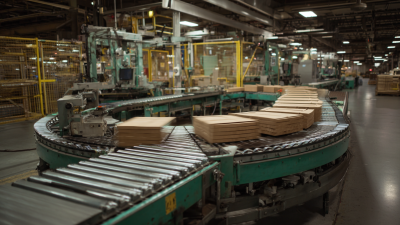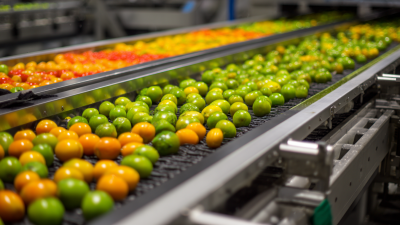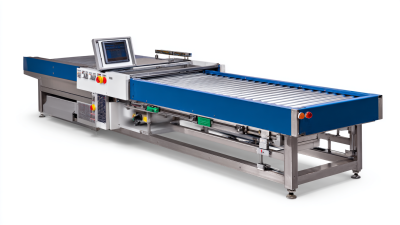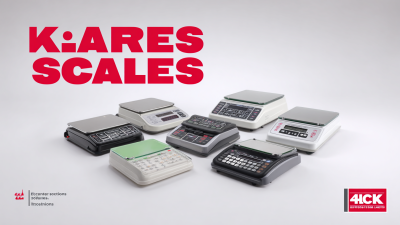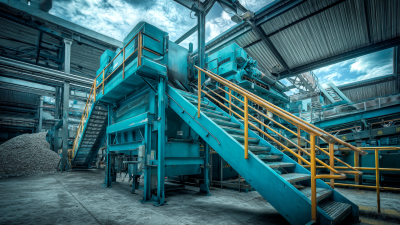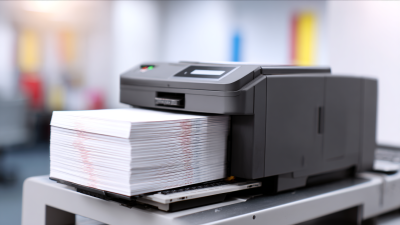 In today's increasingly industrialized world, ensuring safety and quality in production processes is paramount. Automatic Metal Detectors have emerged as indispensable tools for a wide range of industries, from food processing to pharmaceuticals. According to a report by Markets and Markets, the global metal detection market is projected to grow from USD 3.99 billion in 2021 to USD 5.81 billion by 2026, reflecting the increasing demand for enhanced safety and quality assurance measures.
These state-of-the-art devices not only help in identifying metal contaminants, thereby preventing costly recalls and safeguarding consumer health, but they also contribute to operational efficiency by minimizing downtime in production lines. As industries continue to prioritize compliance with stringent regulations and standards, the adoption of Automatic Metal Detectors is becoming a critical aspect of maintaining high quality and safety in manufacturing processes.
In today's increasingly industrialized world, ensuring safety and quality in production processes is paramount. Automatic Metal Detectors have emerged as indispensable tools for a wide range of industries, from food processing to pharmaceuticals. According to a report by Markets and Markets, the global metal detection market is projected to grow from USD 3.99 billion in 2021 to USD 5.81 billion by 2026, reflecting the increasing demand for enhanced safety and quality assurance measures.
These state-of-the-art devices not only help in identifying metal contaminants, thereby preventing costly recalls and safeguarding consumer health, but they also contribute to operational efficiency by minimizing downtime in production lines. As industries continue to prioritize compliance with stringent regulations and standards, the adoption of Automatic Metal Detectors is becoming a critical aspect of maintaining high quality and safety in manufacturing processes.
Automatic metal detectors have become essential tools in various industries, significantly enhancing safety standards and protecting workers. According to a recent report by the Occupational Safety and Health Administration (OSHA), workplaces that implement metal detection systems have seen a 30% reduction in workplace injuries related to metal contamination. This is especially crucial in sectors like food processing and manufacturing, where the risk of metal debris can lead to severe accidents and product contamination.
Furthermore, a study published by the International Journal of Occupational Safety highlights that nearly 17% of workplace accidents involve metal injuries, which can have dire financial implications for companies, averaging $1 million per incident when considering medical costs, lost productivity, and legal fees. By utilizing automatic metal detectors, industries not only safeguard their workforce but also mitigate costly repercussions while enhancing operational efficiency. These systems provide an added layer of security, ensuring that workers can perform their tasks without the constant worry of hidden dangers, thereby fostering a culture of safety and compliance within the workplace.
Ensuring the integrity of products in various industries is paramount, especially with growing concerns around contamination. The use of automatic metal detectors plays a crucial role in this regard, enhancing product quality by meticulously checking for metallic contaminants. In sectors like pharmaceuticals and food production, where the stakes are particularly high, these detectors serve as a line of defense against potential health hazards. The global pharmaceutical metal detector market is projected to see significant growth, indicating a rising awareness of the importance of contamination-free goods. A recent multi-year analysis highlighted dangers associated with heavy metals discovered in everyday products, stressing the need for rigorous detection measures.
The efficacy of metal detection technology extends beyond just compliance; it fosters consumer trust and assures quality. With advancements in detection methods, industries are adopting more sophisticated technologies that seamlessly integrate with existing processes. By ensuring that products are thoroughly screened for contaminants, manufacturers can prevent health risks associated with toxins, such as those found in certain food and cosmetic products. This not only safeguards public health but also protects brands from potential liability issues stemming from contaminated goods. As technology evolves, the importance of automatic metal detectors in maintaining safety standards continues to be more critical than ever.
 In today's fast-paced industrial landscape, optimizing workflow is crucial for achieving maximum production efficiency.
Automatic metal detectors play a vital role in this process by ensuring that production lines run smoothly without interruptions.
By automatically identifying and eliminating metal contaminants in raw materials and finished products, these detectors prevent costly downtime that could arise from machinery damage or product recalls.
This seamless integration into the production process allows for a more streamlined operation, as businesses can focus on consistent quality and increased output.
In today's fast-paced industrial landscape, optimizing workflow is crucial for achieving maximum production efficiency.
Automatic metal detectors play a vital role in this process by ensuring that production lines run smoothly without interruptions.
By automatically identifying and eliminating metal contaminants in raw materials and finished products, these detectors prevent costly downtime that could arise from machinery damage or product recalls.
This seamless integration into the production process allows for a more streamlined operation, as businesses can focus on consistent quality and increased output.
Furthermore, the implementation of automatic metal detectors enhances overall safety protocols within industrial environments.
By ensuring that metal contaminants are promptly detected and removed, these systems contribute significantly to workplace safety, reducing the risk of injury and enhancing compliance with industry regulations.
As a result, companies not only safeguard their employees but also uphold their reputation for quality and reliability in the marketplace.
Embracing automated solutions like metal detectors allows industries to achieve remarkable levels of efficiency while fostering a culture of safety and quality assurance.
In today's industrial landscape, the implementation of automatic metal detectors has become crucial for ensuring product quality and safety. One of the most significant advantages of these metal detection systems is their ability to reduce costs associated with waste and liability. By detecting metal contaminants in production lines early on, businesses can prevent defective products from reaching consumers, thereby minimizing recalls and the associated financial impacts. This early detection not only safeguards a company’s reputation but also protects its bottom line.
Additionally, the integration of metal detectors can lead to streamlined operations and improved efficiency. With real-time monitoring and automatic alerts, companies can optimize their production processes, reducing the time spent dealing with contamination issues. By ensuring that products are free from metal contaminants before they leave the facility, organizations can significantly lower the risk of liability claims and enhance customer satisfaction. Ultimately, the use of automatic metal detectors serves as a proactive measure that fosters a safer working environment while driving cost savings and operational efficiency.
| Benefit | Description | Cost Savings Impact | Liability Reduction |
|---|---|---|---|
| Enhanced Product Safety | Detects metal contamination in products to ensure consumer safety. | Reduces costs related to product recalls and lawsuits. | Minimizes legal liabilities from contaminated products. |
| Process Efficiency | Automated detection streamlines production processes. | Saves labor costs by reducing downtime. | Decreases chances of production interruptions. |
| Quality Control | Ensures high quality of products by detecting foreign contaminants. | Reduces rework costs and waste. | Protects brand reputation and minimizes customer claims. |
| Regulatory Compliance | Helps meet industry standards and regulations regarding safety. | Avoids fines and penalties associated with non-compliance. | Safeguards against legal repercussions. |
| Increased Customer Trust | Demonstrates commitment to safety and quality. | Lowers costs associated with lost customer trust. | Enhances relationship with customers and stakeholders. |
| Reduction of Product Defects | Minimizes the occurrence of defects caused by metal contaminants. | Saves on costs of defects and returns. | Lessens risk of liability due to defective products. |
| Implementation of Best Practices | Promotes continuous improvement and implementation of safety standards. | Reduces overall operational costs. | Decreases risk of incidents leading to liability claims. |
In today’s industrial landscape, regulatory compliance has never been more critical, especially in sectors such as food processing, pharmaceuticals, and manufacturing. Automated metal detection solutions play a pivotal role in ensuring that companies meet strict industry standards. According to a report by the Food Safety Inspection Service, nearly 10% of food products recalled in recent years were due to contamination, including metal fragments. By integrating automatic metal detectors into production lines, companies can minimize these risks effectively, ensuring their products not only meet safety regulations but also protect their brand reputation.

Moreover, the adoption of automated metal detection systems can significantly reduce human error in compliance processes. Research from the Institute of Packaging Professionals indicates that over 70% of industry leaders believe automated systems are essential for maintaining quality assurance. These detectors provide consistent and reliable inspections, allowing industries to maintain a robust quality control process. Furthermore, the data collected during inspections can aid in compliance audits, providing evidence that safety measures are being followed diligently. This not only helps in adhering to local and international regulations but also enhances overall operational efficiency.
